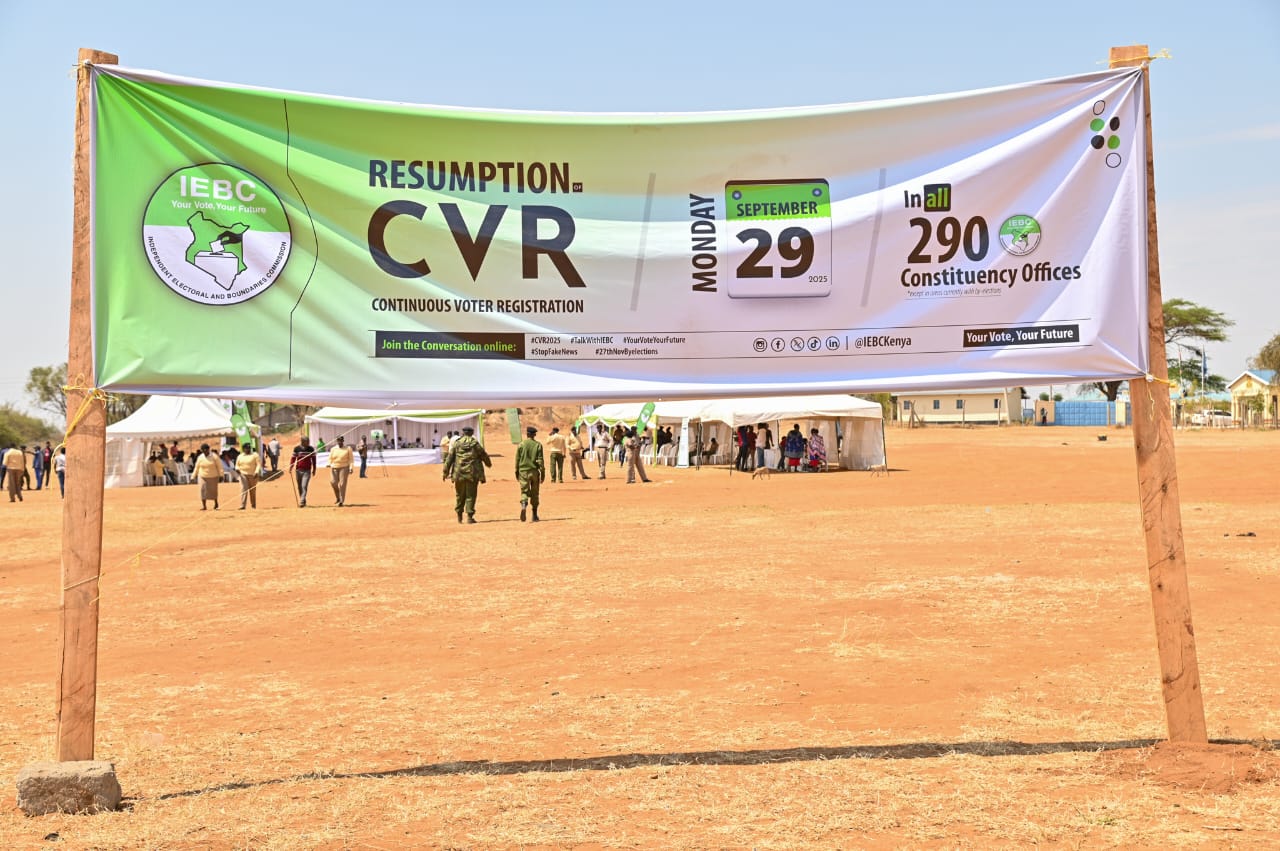

In the past year, a significant number of young people in Kenya have been raising their voices through street demonstrations and on social media, protesting against what they perceive as flawed government laws and policies.
Yet, when it comes to registering to vote in the just-launched new IEBC registration drive, they have been largely absent.
The disappointingly low turnout is concerning, but it isn’t about a lack of interest. It's about a profound loss of trust.
Over the past year, civil society partners have convened young people across Kenya in town halls and digital forums to listen to their hopes, frustrations, and ideas for the country’s future.
What emerges
is a generation deeply committed to justice, opportunity, and dignity, yet
increasingly disillusioned with how power is exercised.
They are organising online, building movements, and
redefining what civic participation means for them. Their frustration is not
with democracy itself, but with a version of it that feels extractive,
performative, and detached from their everyday realities.
Why
Aren’t Youth Registering?
One of the first and most
pressing hurdles is gaining access to a National Identity Card.
This is especially challenging
for young people from marginalised communities, such as those in coastal or
pastoral areas.
The ID is necessary for voter
registration, but the process to obtain one is often long, complex, and
difficult for many young people to navigate.
This kind of administrative
barrier actively disenfranchises thousands.
Without an ID, you can’t
register. Without registration, your voice doesn’t count.
The Economics of Disenchantment
The economic challenges that
young Kenyans face are also a significant factor.
With high unemployment and an
overwhelming cost of living, it’s hard to see how voting can lead to real
change when the political landscape fails to create jobs, improve
infrastructure, or make living affordable.
Many young people feel
disillusioned because they believe political engagement won’t result in
anything tangible.
The high costs associated with
running for office, coupled with rampant vote-buying and corruption, turn
politics into a game dominated by the wealthy. Why would a young person want to
register and legitimise a system that feels rigged against their economic
survival?
Broken Promise
Ultimately, this low
registration turnout represents a crisis of trust.
Young Kenyans are acutely aware
that merely electing new leaders has often failed to lead to real change.
They have seen incumbents voted
out only to be replaced by others who repeat the same cycles of corruption.
When urging young people to
register without addressing these systemic issues, we risk reducing them to
mere numbers in a turnout campaign, something they feel does not serve their interests.
A recent Civic Voice survey
revealed that 64.4% of young people in political parties feel unsupported in
their civic engagement.
When they are excluded from
decision-making processes, registration feels like a hollow gesture rather than
an empowering act.
Way Forward
The IEBC, together with the
National Registration Bureau, needs to simplify the process of obtaining an ID.
Voter registration should be
integrated with ID delivery, creating a seamless and accessible experience for
everyone.
No one should be denied the
chance to participate in democracy because of their ethnic or religious
background, or their economic situation.
Political participation isn’t just about
voting.
Organisations like Civic Voice are already
leading the charge by using digital platforms and traditional media to amplify
young voices and foster a culture of active citizenship.
The IEBC and civil society groups should
continue to leverage innovative methods, such as peer mobilisation and targeted
social media campaigns, to engage young people in discussions about policies,
community advocacy, and election monitoring.
Young people should be active creators of
civic learning, rather than just passive participants.
Political parties must also be
encouraged to reform their internal structures to truly include young people,
ensuring that their voices are not merely tokenistic.
This includes funding youth wings, involving them in policy-making, and
holding to promises made.
The government must demonstrate a genuine connection between the
electoral process and the economic realities that young people face, making
politics relevant and accessible.
Reimagine Democracy
Kenya’s youth need systems that
respect their agency, reflect their realities, and reward their participation.
Civil Society organisations
remain committed to amplifying youth-led civic innovation, but we cannot do it
alone.
The IEBC, political parties, and
government must meet young people where they are: in classrooms, online spaces,
and community forums.
If we want to see young Kenyans actively
participating in the political process, we must address these barriers and
create an environment where they feel included, valued, and empowered to bring
about the change they want to see.
The writer, Abdul Noormohamed,
a seasoned human rights advocate and policy strategist, is the Director of
Civic Voice.













